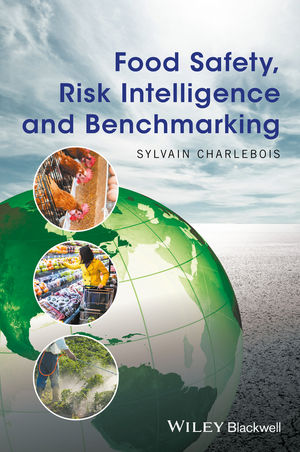FSANZ Publishes 2022–2023 Annual Report Summarizing Agency Activities, Recalls, Performance

Image credit: OpenClipart-Vectors via Pixabay
Food Standards Australia New Zealand (FSANZ) recently published its Annual Report summarizing the agency’s activities and performance from July 1, 2022–June 30, 2023.
Regarding standards development, during the reporting period FSANZ completed work on and secured food ministers’ agreement for 20 food applications, two proposals, and a review of the kava standard, resulting in a range of amendments to the Australia New Zealand Food Standards Code (the Code) and new and strengthened standards.
Of the 20 applications approved in 2022–23, all but one (95 percent) were completed ahead of statutory timeframes, delivering an almost 20 percent improvement on the agency’s 2021–22 turnaround, which has a completion rate ahead of statutory timeframes of 77 percent. FSANZ also commenced work on two applications for new foods not previously assessed—one for a genetically modified banana and another for cultured quail meat. Public consultations for the novel applications are expected in late 2023.
The two approved proposals delivered new primary production and processing standards for three berries, leafy vegetables, and melons, as well as new food safety management tools for the food services sector. The new standards support Australia’s Foodborne Illness Reduction Strategy 2018–2021+. FSANZ also updated the Safe Food Australia Guide to support implementation of the new food safety management tools.
In addition to the approved proposals, FSANZ reaffirmed amendments to the Kava Standard in the Code after a 12-month review process. The 2022 amendments to the standard were made to ensure continued protection of public health and safety following the Australian Government’s decision to allow the commercial importation of kava into Australia from December 2021. FSANZ also progressed work on proposals to revise definitions for gene technology and new breeding techniques, review infant formula, sports foods, caffeine, and egg safety standards, as well as considered labeling changes for added sugars and alcoholic beverages.
With respect to food safety, surveillance, and evidence, FSANZ commissioned the development of a model to estimate the annual cost of foodborne illness in Australia. The model was used to estimate costs of illness from ten significant foodborne pathogens, which assisted in refining regulatory measures for horticulture and for the foodservice sector.
Moreover, the agency coordinated sampling for the national survey of antimicrobial-resistant bacteria in food, the data from which is currently under analysis, and for which the findings are expected in early 2024. The survey will contribute to the evidence base for antimicrobial resistance (AMR) in food and provide knowledge to inform decision-making.
FSANZ also coordinated 93 food recalls in 2022–23, which is an increase from 79 in 2021–22 and surpasses the ten-year average of 79 recalls. The agency also coordinated national responses to food incidents related to thebaine toxicity linked to poppy seeds and toxic weed contamination in spinach.
The agency also reviewed the safety of titanium dioxide in foods, which were initiated in response to the release of an updated safety assessment by the European Food Safety Authority (EFSA) in May 2021. FSANZ considered submitted scientific data and available literature on titanium dioxide, and found that there is currently no evidence to suggest dietary exposure to food-grade titanium dioxide is a concern for human health
Collaboration and stakeholder engagement activities were also summarized in the Annual Report, including the following initiatives:
- Establishing the Science and Food Safety Dialogue to build government collaboration among food safety and risk assessment agencies in the Asia-Pacific region, with the first meeting held in Singapore in April 2023
- Continued leadership of a range of international projects, including the Association of Southeast Asian Nations (ASEAN) import maximum residue limit (MRL) project
- Introduction of the Consumer Insights Tracker, an annual nationally representative survey of Australian and New Zealand consumers that will inform FSANZ’s standards development work and risk analyses and provide up to date trend data on key trust measures
- A trial of the Citizen Space digital engagement platform to test new approaches to public and stakeholder consultation and build agency capacity and capability in digital engagement.
FSANZ reported increasing its stakeholder satisfaction rating to 75 percent and achieving consumer confidence levels above 80 percent. The agency also developed an action plan to build manager leadership capability, remove unnecessary bureaucratic processes, better articulate organization priorities considering tight fiscal constraints, support a safe and inclusive workplace through the appointment of a new Diversity Champion, and establish a new People and Culture Forum during 2022–23.
Looking for a reprint of this article?
From high-res PDFs to custom plaques, order your copy today!









